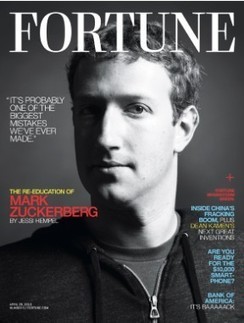I've written here many times about the conflict that many innovators often face when called on to make definitive decisions about customer needs and the best ideas to pursue as new products and services. We've noted that innovation requires - no demands - people who are comfortable operating in an ambiguous stew of information, research, trends, insights and customer needs. Few of these data points are developed with any statistical rigor, yet together they must provide a direction for the team to follow. For people who are more familiar with stark differences and quantitative answers, this sea of ambiguity is very difficult to confront. Faced with hazy information, inferences, wants and needs, they are quick to try to identify the "best" and most certain data in the mix, rather than find the most important trends or currents that all the research suggests. We've managed over the last 30 years to train people to be very decisive when the data are clear, and to be very hesitant when the data aren't clear or definitive. The most common refrain is: "how can you be certain"? In innovation, the fact is that you often can't. If the data were evident and certain, the data would be evident and certain to everyone, and a solution wouldn't be radical or disruptive because everyone would be building it.....
Via Thomas Menk



 Your new post is loading...
Your new post is loading...












